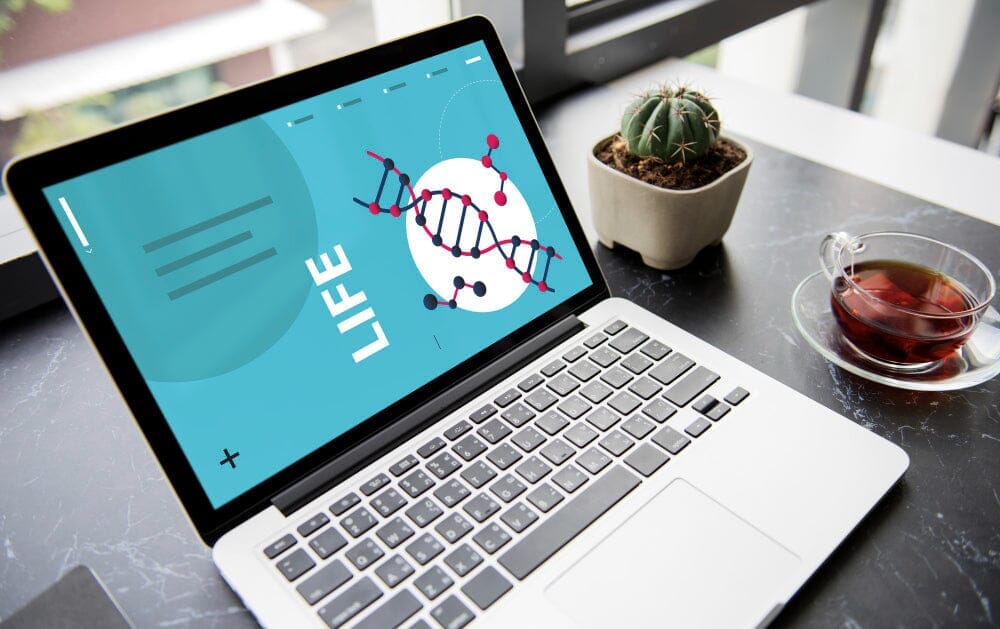
The Role of Genetics in Nutrition And Absorption
Time to read 3 min
Time to read 3 min
We, as humans, may all possess the same set of genes. But our environmental conditions including weather, availability of resources etc. determine which genes are prominently expressed. This not just influences our individual physical appearance but also has an effect on how we react to certain factors such as fitness, weight loss, acquiring a disease, nutritional behaviour etc.
Did you know that major biological variables such as the genetic background influence the nutritional behaviour of an individual? You may wonder how. Let us understand this better taking the example of Lactose Intolerance.
Individuals with lactose intolerance are incapable of efficiently breaking down the primary milk sugar, lactose, from dairy products. This happens because of inadequate production of lactase in the small intestine due to genetic variation in the lactase gene. Hence, people with lactose intolerance avoid natural dairy products.
Also, the nutrition we acquire while in our mother’s womb affects our genes and traits and may also have an influence on development of diseases.
It is because of this reason that Nutritionists and Dieticians began approaching genetics in the hope of identifying a person’s genetic profile and customizing their nutritional therapy accordingly as DNA testing helps take out the guesswork.
Our genes can also be affected by various other factors such as:
We may not have complete control of how our genes are affected but we do have some control over what we do about the outcomes. If we are lactose intolerant, we avoid milk and dairy. However, how can we be sure that we are indeed lactose intolerant, or allergic to protein, just by looking at the symptoms?
This test helps us understand our genes better so we can make changes in our nutrition in order to avoid/recover from illness, treat a specific disorder or just get healthier.
While anybody can get this test done, it particularly benefits:
It is therefore important to note that all genetic tests are highly individual in nature. What recommendation works for one person would not work for another. Here are some parameters our genes influence and how a genetic test can point them out.
Obesity
Each person responds to diet differently due to genetic variations among individuals. Nutrigenomics (a branch of nutritional genetics) aims to suggest tailored diet plans by exploring the relationship between an individual’s diet and genes in order to prevent/cure obesity.
Anti-ageing
Accumulation of excess free radicals in the cells due to lack of proper nutrition and other external factors such as UV rays, pollution, etc. causes aging.
Studying the DNA makes it possible to eliminate the specific excess radicals by supplying the right mixture of nutrients required for this.
Cardio-vascular Problems
Nutrigenomics ties in to cardiovascular medicine to enable better prevention as well as treatment of Cardio-vascular diseases by optimizing or customizing an individual’s dietary needs and intakes depending on their heart and vessels’ natural propensity to accumulate unwanted metabolites.
Body Endurance
Body endurance, especially for athletes, is a major factor determining their success. A nutri-genetics test will help one know what dietary supplements will help them build their endurance while being in harmony with the body structure.
A typical Genetics test is performed by collecting a sample of human cell nuclei. This can be collected from a cheek swab and this process is pretty painless.
DNA is then extracted from this sample, amplified, sequenced and assembled into a format/language understandable by the patient.
Researchers then analyse the genes, arrays or the complete genome of the individual, based on which the patient can receive their tailored dietary prescription.
This information and tailored diet plan can be used to achieve our objectives such as weight loss or stamina.
To summarise,
*Medical Disclaimer - The following information is for educational purposes only. No information provided on this website, including text, graphic, and images, are intended as substitutes for professional medical advice. Please consult with your doctor about specific medical advice pertaining to your condition(s)